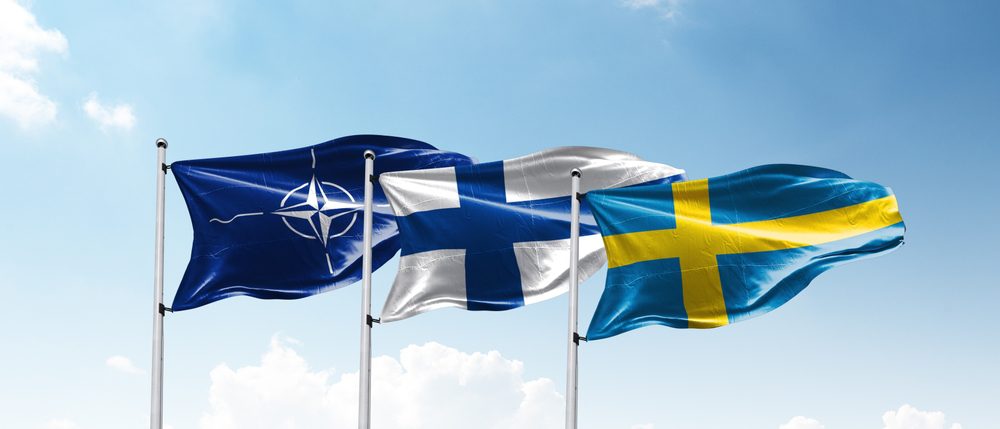
A rare near-unanimous bipartisan agreement has been reached in the U.S. Senate. On Wednesday, August 3rd, a 95-1 vote ratified Finland and Sweden’s request to join NATO, Reuters reports. Senate minority leader Mitch McConnell praised Finland and Sweden’s well-funded, modernizing militaries while calling the decision a “slam-dunk for national security.”
With the vote, the two-thirds majority of 67 votes required to support ratification was overshot by a wide margin. With this, it is left for American President Joe Biden to give final approval, which he is expected to do in the coming days.
Republican Senator for Kentucky Rand Paul abstained from voting, while the lone voice of opposition was Senator Josh Hawley, a Missouri Republican. In not so many words, he termed U.S. involvement in Europe a distraction. His speech, made on the Senate floor, rapidly went viral and subsequently drew criticism from Democrats and Republicans alike:
Expanding NATO will require more U.S. forces in Europe. More manpower, more firepower, more resources, more spending … But our greatest foreign adversary is not in Europe. Our greatest foreign adversary is in Asia. And when it comes to countering that adversary, we are behind the game. I’m talking, of course, about China. The communist government of Beijing has adopted a policy of imperialism. It wants to dominate its neighbors, dictate to free nations. It’s trying to expand its power at every opportunity, and that includes power over the U.S.
In a statement issued by the White House, U.S. President Joe Biden welcomed the “historic vote,” saying it “sends an important signal of the sustained, bipartisan U.S. commitment to NATO, and to ensuring our alliance is prepared to meet the challenges of today and tomorrow.” He went on to say that it would “further strengthen NATO’s collective security and deepen the transatlantic partnership.”
Earlier in June, Celeste A. Wallander, an official in the U.S. Department of Defense made the case for Finland and Sweden joining the alliance. She touted Finland’s “location on the Baltic Sea, diplomatic experience with Russia and advanced capabilities,” which would “make it an asset to the alliance,” she said. “Finland spends more than 2%of its [gross domestic product] on defense, and possesses unique military capabilities and expertise, particularly operating in the arctic environment,” she added.
As for Sweden, its accession would bring “a first rate and rapidly growing military with a principled foreign policy that ardently defends democracy and human rights.” She drew attention to the country’s military expertise, which in Arctic and undersea environments, “would substantially advance alliance capabilities.”
With the U.S.’ thumbs up, 22 NATO members have now given their approval. Should all 30 members complete the ratification process before the end of the year, the U.S.-led military alliance would have achieved one of its most significant—and quickly executed—expansions. It was just less than a month ago that the two Scandinavian countries concluded their respective accession talks.
Soon after the news, NATO Secretary General Jens Stoltenberg, praised the decision during a speech at the AUF summer camp. There, seemingly beaming with pride, he called it the “fastest accession process in NATO’s modern history.”
23 Allies have now ratified Finland and Sweden’s accession to #NATO @JensStoltenberg | 🇫🇮🇸🇪
— NATO (@NATO) August 4, 2022
Full speech: https://t.co/7bszlB9kQq pic.twitter.com/HZR7cHH1Cj
Historically, Finland and Sweden have been non-militarily aligned. After Russia’s military actions in Ukraine, they however felt it prudent to reconsider. Russia has repeatedly warned both countries against joining the alliance.
Moscow has yet to comment on this most recent development.
